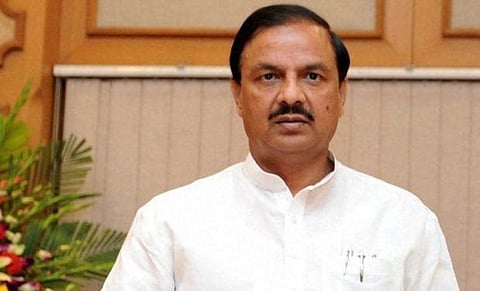

NEW DELHI: A bill to allow the government to take up infrastructure projects within prohibited areas around protected monuments was passed in the Lok Sabha today.
"Moving away from the party lines, the members have supported the Bill," Culture Minister Mahesh Sharma said while replying to the concerns raised by the members during the debate on Ancient Monuments and Archaeological Sites and Remains (Amendment) Bill, 2017.
"We are happy to say that in the last three years UNESCO has recognised six monuments (of India)," the minister said.
The bar on new construction within prohibited areas of a protected monument was adversely affecting various public works and developmental projects of the central government, the bill's Statement of Objects and Reasons said.
Amendments have been proposed in the legislation to the 1958 Act that prohibits carrying out any public work or project or other constructions in any prohibited area around protected monuments.
A 'prohibited area' means land in the 100-metre radius around a protected monument. Currently, construction is not allowed in the prohibited areas except for repair and renovation works.
Addressing to the concerns of Shashi Tharoor (Congress), he said the change which is being brought about was in the national interest.
He said no individual or private entity should be benefited and this bill should be used only in the interest of the nation.
The government said the need was felt to amend the law to allow "construction works related to infrastructure financed and carried out by any department or office of the central government for public purposes which is necessary for the safety or security of the public at large".
Besides, such construction works would be taken up when there is no possibility of any other viable alternative to such construction beyond the limits of the prohibited area.
The Bill also seeks to have a new definition of "public works" under the Act.
There are more than 3,600 monuments and sites that are centrally-protected under the jurisdiction of the Archaeological Survey of India, which is responsible for their maintenance.
Earlier moving the Bill for consideration and passage, Sharma said the amendment in the law is needed so as to carry out certain public works, which fall within the prohibited area of 100 meters, in national interest.
He cited examples of an ongoing Kolkata metro project and a few other public constructions which, he said, were required to be completed.
The new law, which was introduced in the monsoon session, will give relaxation only for government works to be carried out in national interest and no private work will be allowed, he said.
Manoj Tiwari (BJP) supported the bill and claimed that it will help in preservation of cultural monuments and sites.
As a member of a standing committee dealing with monuments, he came to know that 24 such sites are only on paper and do not really exist due to encroachment, he said.
Referring to such monuments in Delhi, Tiwari said he kept asking in the standing committee meeting where these had gone but found no answer.
Adhir Ranjan Chowdhury (Congress) asked the government to reconsider the bill and send it at the least to a standing committee. "Whom are you trying to benefit," he asked and added that such relaxations will "open a Pandora's box".
Delhi Metro was not allowed to come up in Lutyens' Delhi as it could mar its aesthetics, he claimed, adding that the government was not concerned about aesthetics of monuments.
Delhi metro work in Lutyens' Delhi is largely underground.
Kalyan Banerjee (TMC) referred to east-west line of the Kolkata metro which has been stopped due to the existing law and said relaxation was needed to complete it.
He, however, asked the government to ensure that public works for which the relief is granted is only for greatest public good. "This power should not be abused," he said.
While Prabhas Kumar Singh (BJD) opposed the bill, he and Chowdhury also objected to a clause that gave the central government a final say in the matter whatever be the report of the National Monuments Authority.